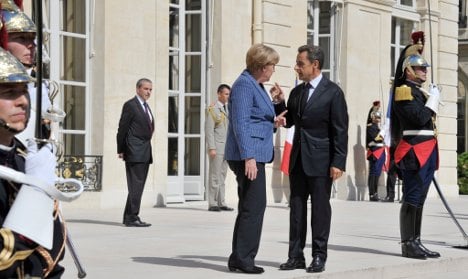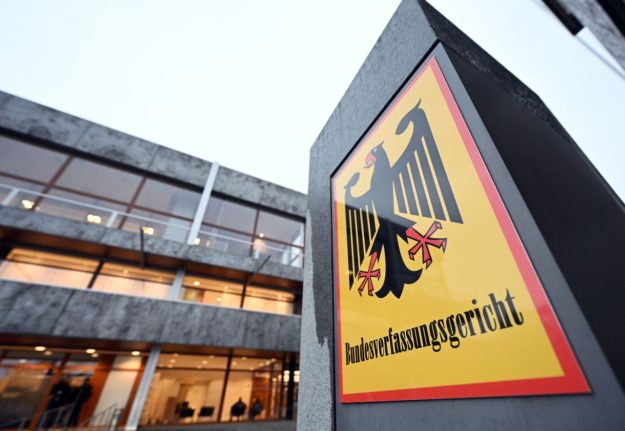Though many German commentators welcomed a vow on Tuesday by Berlin and Paris to beef up fiscal coordination within the eurozone as a first step towards curbing Europe’s woes, the financial markets were less impressed.
The Frankfurt Stock Exchange lost ground in early trading on Wednesday, as shares in the stock market operator Deutsche Börse fell by more than six percent owing to a proposed tax on financial transactions.
German Chancellor Angela Merkel and French President Nicolas Sarkozy made the proposal to strengthen economic integration among the 17 countries using the euro at an anxiously anticipated summit meeting late on Tuesday in Paris.
But Merkel brushed aside calls for eurobonds, seen by many as a means of alleviating the risk of debt contagion. And Sarkozy suggested on Tuesday such a move could only come in the wake of greater integration.
Many newspapers in The Local’s media roundup on Wednesday welcomed the Paris initiative, but some remained sceptical over whether it would help alleviate the current debt crisis.
Berlin’s centrist daily Der Tagesspiegel said the summit was proof that Europe’s Franco-German engine was alive and well.
“It might sound melodramatic, but what Nicolas Sarkozy and Angela Merkel announced on Tuesday evening after their consultations is the most visionary fiscal and economic policy in Europe since the introduction of the euro,” the paper wrote.
“A common currency cannot function without a coordinated economic, tax and fiscal policies. Greece is on the verge of bankruptcy because all of that is lacking. One can only hope that Merkel and Sarkozy didn’t come up with their proposal akin to a magician pulling a rabbit out of hat – but rather in concert with (other important European) leaders in Madrid, Rome, The Hague and Lisbon.”
Nuremberg’s regional daily the Nürnberger Nachrichten agreed Paris and Berlin could not make important decisions about the eurozone’s future alone.
“But it finally seems as if Angela Merkel and Nicolas Sarkozy have realized just how serious the euro situation is. They’re jumping over their shadows and tackling tough subjects that particularly the chancellor had previously avoided. The crisis has shaken them free of their paralysis.
“But scepticism will remain until there are concrete agreements, as there have been plenty of similar announcements made at various summits before. And no matter how important Paris and Berlin are for the EU, they will now have to convince many other partners of the courageous path they’ve decided to take.”
The business daily Financial Times Deutschland warned there could be fierce opposition to the proposal to anchor a debt limit in the constitutions of all eurozone members.
“It’s an affront by the Europe’s two leading powers to the national parliaments of the eurozone. In many countries there are likely to be reservations about having austerity dictated to them, making such a suggestion extremely risky. If just one country rejects it, the intended goal of stabilizing the financial markets would be missed and the opposite achieved. Crucially, not even France has passed legislation for an overall borrowing cap yet.”
And other commentaries showed how divided Germany remains on whether to sanction eurobonds as a solution to the debt crisis.
“Eurobonds will come,” wrote Bonn regional daily the General-Anzeiger. “They are unavoidable and compared to a constantly growing rescue fund and a central bank mutating into a ‘bad bank’ from buying up bonds, they represent the more honest course. The transfer union is already here. That must be extremely clear to Merkel by now – only she can’t sell that to the Germans (and especially the FDP) without risking her chancellorship.”
The Leipziger Volkszeitung, however, couldn’t disagree more with that assessment.
“She didn’t give in this time, the chancellor. There won’t be eurobonds for the time being – and that’s an extremely good thing,” wrote the paper.
“Germany, deep in debt itself and now with a weakening economy, cannot be responsible for the entire debt of Europe. What wastrel wouldn’t think about spending money again when offered cheap credit? Eurobonds would win some time, but wouldn’t be a solution. They’re a political excuse to keep postponing things until the bitter end.”
The Local/AFP/mry



 Please whitelist us to continue reading.
Please whitelist us to continue reading.
Member comments